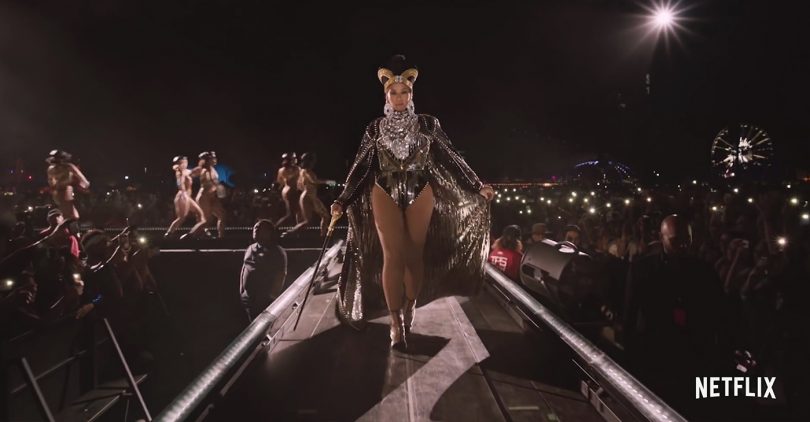
By Chelle Wilson, Texas Metro News Columnist
“It is a magnificent time to be alive in this, the Beyoncé Era. Yes, she breaks records…all the records. Yes, she took command of Vogue hiring the first Black photographer to shoot a cover—ever. Yes, the first Black woman to headline Coachella dedicated her performance to us through an epic celebration of our culture and beloved HBCUs. Yes, when choosing a partner to relaunch Ivy Park her decision is said to have been made based on corporate diversity, representation, and seats at the decision-making table. Yes, she is all of that and a bag of spicy chips, but when I look at Beyoncé, I see so much more.”
I notice that it is only when my mother is working in her flowers that she is radiant, almost to the point of being invisible—except as Creator: hand and eye. She is involved in work her soul must have. Ordering the universe in the image of her personal conception of Beauty.
It is a magnificent time to be alive in this, the Beyoncé Era. Yes, she breaks records…all the records. Yes, she took command of Vogue hiring the first Black photographer to shoot a cover—ever. Yes, the first Black woman to headline Coachella dedicated her performance to us through an epic celebration of our culture and beloved HBCUs. Yes, when choosing a partner to relaunch Ivy Park her decision is said to have been made based on corporate diversity, representation, and seats at the decision-making table. Yes, she is all of that and a bag of spicy chips, but when I look at Beyoncé, I see so much more.
She is the manifestation of generations of Black women’s hopes and dreams, the flower planted centuries ago that is finally free to bloom.
When the trailer for ‘Homecoming,’ her Netflix documentary dropped, the first thing I heard was Dr. Maya Angelou saying: “What I really want to do is be a representative of my race.” As if Queen Bey didn’t already have my heart.
Throughout the documentary, Beyoncé gives us Toni Morrison, W.E.B. DuBois, Audre Lorde, Reginald Lewis and other intellectual, activist, representations of Black excellence, hopefully opening up their bodies of work and inspiring future generations.
Foregoing traditional music festival imagery, Beyoncé said it was more important to bring the culture. Now, she may have foregone the flower crown, but she still led us to the ancestral garden.
In between scenes in Homecoming these words appear on the screen, “Our Mothers And Grandmothers… Moving To Music Not Yet Written…And they waited.” These lines are from Alice Walker’s 1972 essay, “In Search of Our Mothers’ Gardens.” The essay describes the pain of Black women who for generations had to bury their creativity within the depths of their very souls.
The joy and freedom that arise from song, dance, poetry and other forms of artistic expression were shackled by the institution of slavery that thrived on a zombified type of human, void of spirit and soul.
In her essay, Walker describes many of our foremothers as artists “driven to a numb and bleeding madness by the springs of creativity in them for which there was no release…the strain of enduring their unused and unwanted talent drove them insane.”
So, when we see Beyoncé in the documentary trying to garner the same level of passion and excitement for the performance of her encouraging her team to perform as if they are “thankful for [their] freedom,” she was speaking through and for those Black women who existed in a time when “the freedom to paint, to sculpt, to expand the mind with action did not exist.”
Beyoncé had the freedom and luxury to take the time to nurture her body, pre and post pregnancy, but not one to idle, she began researching her ancestry. According to her Vogue interview, she discovered her roots include a slave owner that “fell in love with” and “married” an enslaved woman.
“I questioned what it meant and tried to put it into perspective,” she wrote. How did her foremother define love? Was it forced? Passion? Perhaps, it was simply a means to survive because deep down in her spirit she knew she had to live.
I envision Beyoncé’s ancestor to be a woman in waiting who, as Walker wrote, “moved to music not yet written.”
She moved to a silent melody that would increase in volume as her spirit flowed deep and fast like a river through generational bloodlines. Beyoncé’s vision was clear, “I was so specific because I’d seen it. I’d heard it, and it was already written inside of me.”
I believe; however, the true Coachella choreographers were the ancestral women who waited, sitting patiently for centuries until finally, it was their time to Bey.


